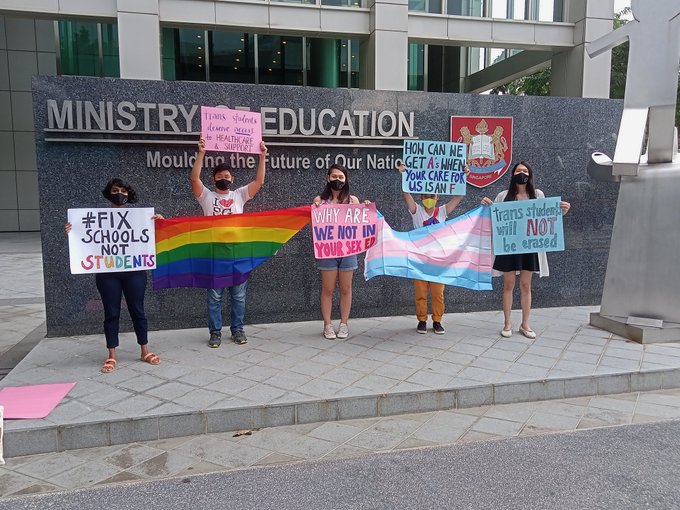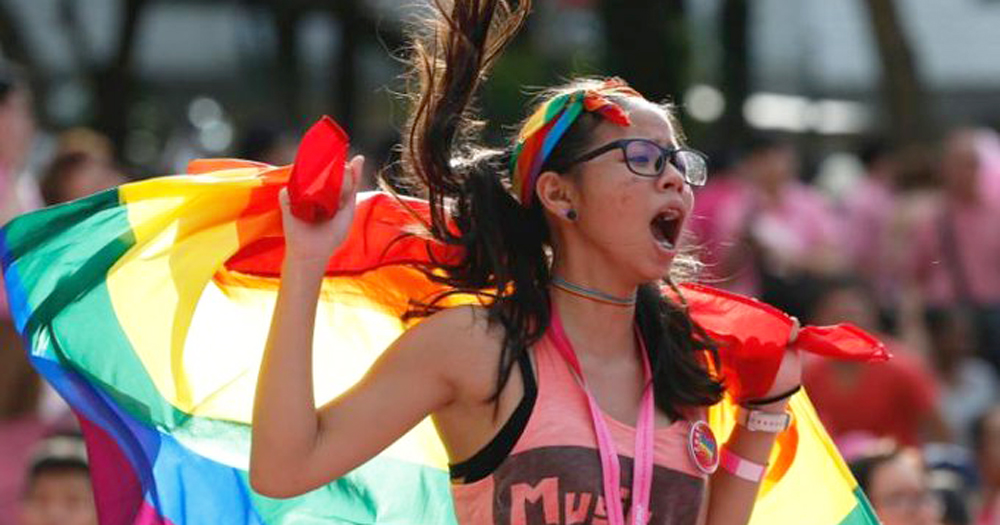It has been an important week for LGBTQ+ activists in Singapore, both in the courtroom and on the streets. While the affluent country has seen some moves towards liberalisation, the queer community continue to fight against legal and social inequality. Recently, campaigners launched an appeal against the 2020 High Court decision to uphold Singapore’s colonial-era gay sex ban.
Section 377A of the Penal Code was enacted in 1938 and carries a maximum sentence of two years in prison for consensual sex between adult men. Though it is rarely enforced, the law is a major concern for the LGBTQ+ community and a divisive issue for Singaporean society as a whole.
After a government review of the penal codes in October 2007, many of the provisions of Section 377 were repealed, however, the ban on gay sex was maintained. In the years since, several different cases have been brought against the legislation, primarily on the grounds that it undermines the rights to personal liberty and equality as outlined in Singapore’s constitution.
In 2012, Lim Meng Suang and Kenneth Chee Mun-Leon, a gay couple of over 15 years, brought a constitutional challenge to Section 337A. However, the case was dismissed by the High Court and later the Court of Appeal, where it was ruled that the issue was a matter for parliament.
Political campaigning has also been central in the fight against Singapore’s gay sex ban. When the government undertook another review of the Penal Code in 2018, activists launched the online movement ‘Ready 4 Repeal’, calling for parliament to decriminalise gay sex as part of the review process. The campaign emphasised the effect of the law on the social and mental wellbeing of LGBTQ+ people. Despite community efforts, Section 377A was specifically excluded from the government review.
While parliament had again failed to protect minority rights, the push for equality continued in the courtroom. Between 2018 and 2019, three separate challenges to Section 377A were filed by campaigners Roy Tan, Johnson Ong Ming, and Bryan Choong. The three cases were heard together in March 2020 by Justice See Kee Oon.
Justice See dismissed all three challenges and held that the 2014 ruling remained binding. In his judgement, Justice See claimed there is no scientific consensus as to whether someone’s sexual orientation can be changed. It is this decision that campaigners set out to challenge in the Court of Appeal.
Outside the courtroom, young Singaporean activists were fighting against inequality in the education system. A small group of students and supporters staged a peaceful demonstration outside the Ministry of Education in response to discrimination and harassment against the LGBTQ+ community in schools. In a statement released by the protesters, they highlighted many concerning practices, including the policing and punishing of same-sex relationships and intrusive controlling of student’s gender expression.

Public protest is illegal in Singapore without a police permit, which activists claim are rarely granted. Police arrived quickly at the demonstration and issued a ‘move-on’ order to the group. Three protesters were then arrested and held until they were bailed out later that night.
In response to the protests, six Singaporean LGBTQ+ organisations, including ‘Ready 4 Repeal’, signed a statement calling on the government to respond to the protestor’s concerns. The statement argued that the events “reflect the frustrations of youths who are continually silenced and rendered invisible by the system”.
© 2021 GCN (Gay Community News). All rights reserved.
Support GCN
GCN is a free, vital resource for Ireland’s LGBTQ+ community since 1988.
GCN is a trading name of National LGBT Federation CLG, a registered charity - Charity Number: 20034580.
GCN relies on the generous support of the community and allies to sustain the crucial work that we do. Producing GCN is costly, and, in an industry which has been hugely impacted by rising costs, we need your support to help sustain and grow this vital resource.
Supporting GCN for as little as €1.99 per month will help us continue our work as Ireland’s free, independent LGBTQ+ media.
